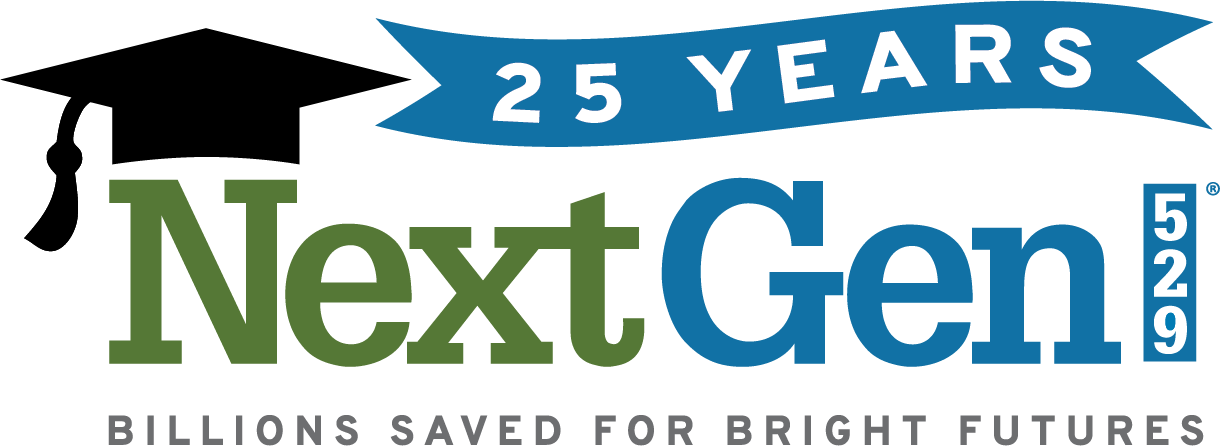Open an Account
“Having some money put away…helps your child think about what they want to do with their future, and know that they have some financial support, but also your support as a parent to pursue their dreams.” – The Martin Family

Family,
Fort Fairfield
NEXT STEPS
What to Expect
Here’s what you’ll do as you go through the process of opening a NextGen 529 account. Read the Program Description to learn more about investing with NextGen 529.
1. OPEN AN ACCOUNT AT MERRILL EDGE
Once you use the Open NextGen 529 Account button below, you will leave this website and be brought to the Merrill Edge® website, where you will open your account online.
Can’t complete an application online? Please call FAME for an application at 800-228-3734.
2. PROVIDE INFORMATION
You’ll provide information about yourself and the beneficiary. You are the account holder and the beneficiary is the person who will benefit from the account (the student).
3. CHOOSE INVESTMENT
Get to know the different types of investment options you can choose when you open a NextGen 529 account. There’s investment information available during the process, or get our investment options overview.
4. ADD TO YOUR ACCOUNT
Most account owners need to add $25 to their NextGen 529 account immediately after opening the account. Or, if you choose automatic funding, you can arrange to contribute any amount, regularly.
GETTING READY
What You’ll Need
Set aside some time to open an account—an hour will be plenty! Have these items on hand before you start.
INFORMATION ABOUT YOU
- Social Security number
- Date of birth
- Valid mailing and email addresses
- Employment information (including company name, address, and start date)
- General household financial information (including annual income and household net worth)
INFORMATION ABOUT THE STUDENT (BENEFICIARY)
- Social Security number
- Date of birth
- Valid mailing address and phone number
- General household financial information
HAVE A QUESTION?
FAQs
Have a question? Get answers to frequently asked questions about NextGen 529 plans. Don’t see your question? Contact NextGen 529.
What can I use a NextGen 529 account for?
You can use your NextGen 529 account funds to pay for a variety of qualified education expenses* at eligible higher education institutions, which include four-year colleges or universities, accredited two-year associate degree programs, vocational schools, trade schools, even qualified online courses– any post-secondary schools that participate in federal financial aid programs—at home or abroad. Qualified education expenses generally include expenses such as tuition and fees, computers, books and supplies, and room and board (for students who attend school at least half time).
In addition, NextGen 529 account funds can be used to pay for fees, books, supplies, and equipment required for the participation of a beneficiary in an apprenticeship program registered and certified with the Secretary of Labor under the National Apprenticeship Act. A maximum of $10,000 can be withdrawn to pay for principal or interest on qualified student loans of the designated beneficiary or a sibling of the beneficiary.
You can also use up to $10,000 per year for the same beneficiary to pay for K-12 tuition at an eligible elementary or secondary school (although some states still consider K-12 tuition a non-qualified expense).
*Qualified expenses are defined in Section 529 of the Internal Revenue Code. Earnings withdrawn for non-qualified expenses are subject to federal income tax; a 10% federal penalty, and state and local income tax rules, which may vary.
Who can open a NextGen 529? Does it have to be a parent?
You don’t have to be the parent or even related to the student. Parents, grandparents and even family friends can open an account, no matter the income or age of the student. You also can open an account to invest for your own future higher education expenses.
Account owners must reside in the United States and be 18 or older, with a valid Social Security number (without work restrictions) or U.S. taxpayer identification number. Noncitizens need to document their United States residency by providing a copy of their United States Permanent Resident Card (commonly known as a “Green Card”) and passport.
Who is the account owner and who is the beneficiary?
The account owner, also called the participant, is the person who opens and retains control of the account. NextGen 529 accounts can only be owned by one person. The account owner is often a parent, but accounts can also be owned by grandparents, other family members, and even family friends. An adult can also own an account for themselves. The account owner controls the account, deciding how the money is invested and for what the money is withdrawn.
The designated beneficiary is the person benefiting from the NextGen 529 account. The beneficiary is often a child, but it can also be an adult student saving for a return to school or further training. (In this case, the account owner and the beneficiary can be the same person.)
Is there a minimum amount that I need to contribute?
There is no minimum contribution amount after you open your account with $25. Make contributions when you can, in whatever amount you are able.
Also, if your child received the $500 Alfond Grant, no initial contribution is necessary.
How do I contribute to a NextGen 529 account?
Contributions can be made online, by check or by transferring or rolling over funds from another account. Make it easy by setting up automatic contributions from your checking or savings account, or using payroll deduction.
Learn more about making contributions.
GRANTS FOR MAINE RESIDENTS
It’s Good to Be a Mainer
There’s grant money available for Maine residents. These grant programs can really boost your savings.1
$500 Alfond Grant for Maine Babies
$100 Initial Matching Grant
$100 Automated Funding Grant
30% NextStep Matching Grant


1Grants for Maine Residents are linked to eligible Maine accounts. An Alfond Grant recipient is eligible to receive the $100 Initial Matching Grant if the minimum required initial contribution is made before the beneficiary’s first birthday. Upon withdrawal, grants are paid only to institutions of higher education. See Terms and Conditions of Maine Grant Programs for other conditions and restrictions that apply. Grants may lose value.
2The Alfond Grant is not automatic in all circumstances and is also available in limited other circumstances. The use of the Alfond Grant is also subject to certain restrictions – see Alfond Grant Guidelines.
USRRMH1024U/S-3948833











